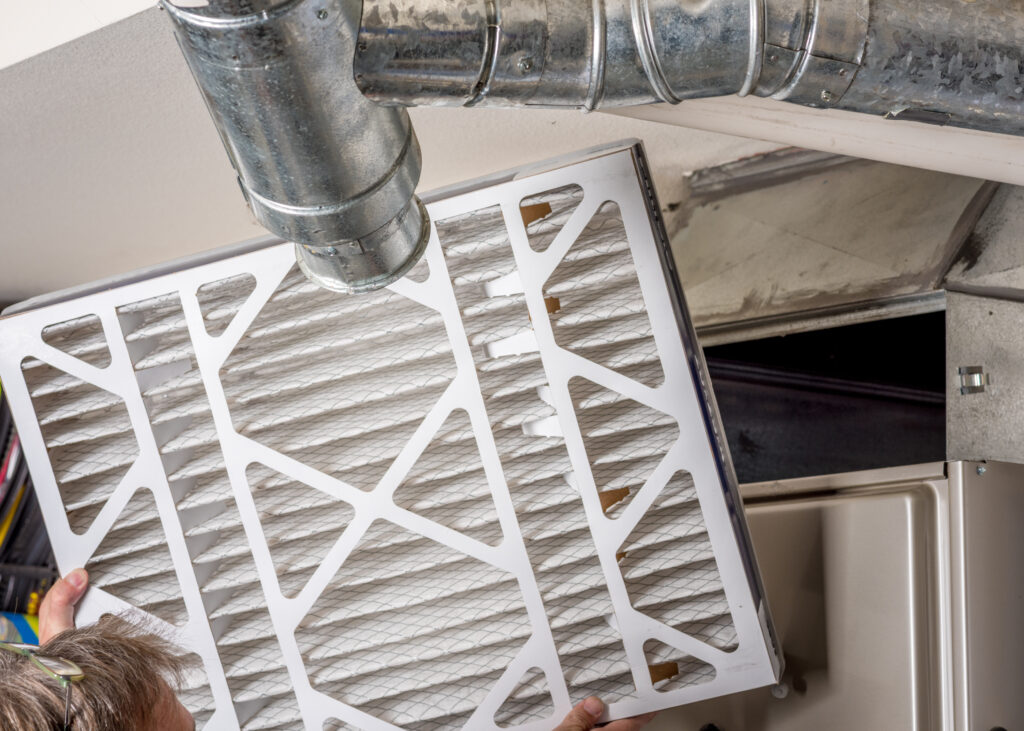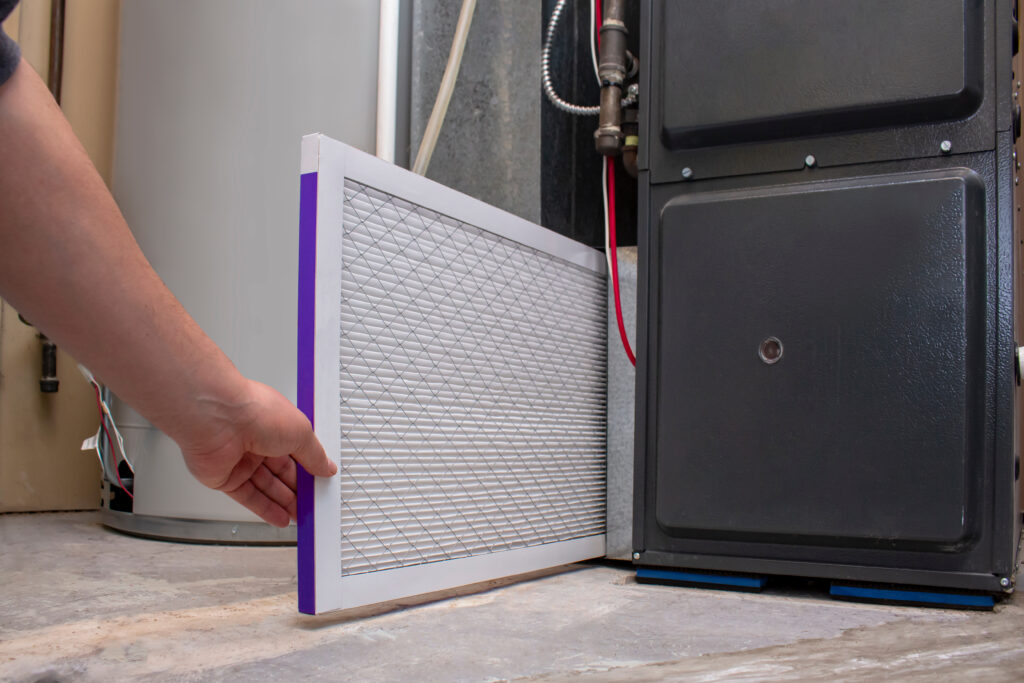The furnace filters in your home will require regular replacement throughout the year. Consider it a routine maintenance that most homeowners often overlook, which can be detrimental to the overall functionality of the heating, ventilation, and air conditioning (HVAC) system. Allowing your heating system to operate while having a dirty filter can jeopardize your system and comfort and might add to your expenses if problems arise.
Changing your furnace filters would be critical to keeping your home’s heating system in top shape throughout the year.
The Role Of The Furnace Filter
Many homeowners believe that the job of the furnace filter is to get rid of contaminants, ensuring optimum air quality. Although it helps improve the indoor air quality in your home, removing the contaminants also helps prevent them from infiltrating the heating and cooling systems. You can rest easy knowing that the critical elements of the system are safe.
The furnace filters protect the sensitive interior components from the buildup of debris, dust, animal dander, and other contaminants. These particles can jam up the intake area or even the heat exchanger, disrupting the system’s normal operation.
When contaminants permeate the interior components of the HVAC system, its overall efficiency suffers, and you’re more likely to encounter problems in the future.
When Is The Appropriate Time To Change The Furnace Filters?
You might be curious to know if there’s a set interval for changing filters. In general, it’s determined by the kind of filter you have in your home. The filters are available in a variety of sizes and quality levels. At any home improvement store, you’re likely to encounter various furnace filters.
Depending on the product, furnace filters should be changed from monthly to yearly. Most manufacturers typically include recommendations on how often you need to change the filters.
The thickness of the filter will play a role in how often you need to change them. Filters with a diameter of one inch require more frequent replacement than those with five inches. If you’re looking for suitable options, you might want to check out https://filterking.com/air-filter-sizes/16x25x1 and others to help you decide on the right one for your home.
Aside from the furnace filter’s quality and thickness, there are other factors to consider such as:
- The overall indoor air quality. If you don’t have an air purifier, you need to change the furnace filter more frequently.
- The number of people in the household. If you have a large family, you should change your filters more often.
- Household members are having allergies. If a family member has allergies, it’s best to change the filters more often to ensure the removal of allergens.
- Frequency of using the HVAC system. The furnace filters won’t last long if you regularly use the HVAC system. When the system is used frequently during the summer and winter, you’ll need to change the filters frequently.
- Presence of pets. Pets such as dogs and cats introduce contaminants into your home through their fur. Additionally, they also shed dander and hair. The furnace filter’s lifespan is reduced by about 30 days for each pet you have.
Issues That Could Arise If You’re Unable To Change Your Filters
If you fail to change the furnace filters, it can bring about an array of problems. Having an unclean filter can trigger problems in your HVAC system, indoor quality of air, and overall home comfort in the long run.
Some of the usual issues that might arise are the following:
- Because the furnace filter’s primary function is protecting the HVAC system’s components, it can’t perform this function if it’s dirty. Once the filter can no longer trap contaminants, they can eventually build up within the system. In the long run, the buildup will negatively affect the performance and might damage the components.
- Dirty filters disrupt the airflow. As this continues, different areas in your home won’t receive the right amount of cooling and heating. It’s difficult to keep your home at the perfect temperature, and you can expect cold and hot spots in certain areas.
- If you have dirty and clogged filters, the air no longer flows properly through the system. The HVAC system uses more energy to push the air because the dirty filter is clogged. The additional work puts a strain on the system, causing it to use more energy, resulting in a higher utility bill and the possibility of damage.
- A dirty filter could no longer trap contaminants that are likely to move back into your home. Sadly, these contaminants can trigger respiratory issues such as allergies.
Remember that regularly changing the furnace filters is crucial for your HVAC system and household. Although it might be easy to overlook the task, it’s something you need to prioritize from now on. Make it a habit to inspect the filter every month to ensure you don’t end up with cooling or heating problems. Switch the dirty filter with a new one once you notice the buildup of contaminants on its surface.
Final Thoughts
Furnace filters play an important role in ensuring your HVAC system functions optimally throughout the year. The furnace filter will protect the interior components from the accumulation of airborne contaminants in addition to maintaining optimal indoor air quality. Since furnace filters play such an important role in your home, make sure to change them regularly to maintain the optimum functionality of your HVAC system and ensure a clean indoor environment.


